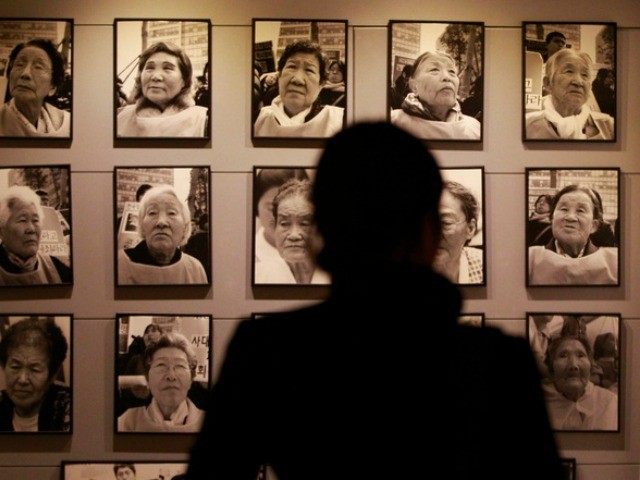Nineteen American historians have signed a letter condemning the government of Japan for demanding that textbook publisher McGraw Hill remove references to “comfort women” from a book that describes Japanese atrocities during World War II.
“As historians, we express our dismay at recent attempts by the Japanese government to suppress statements in history textbooks both in Japan and elsewhere about the euphemistically named ‘comfort women,’” write the academics in a letter which will be published in Perspectives on History, the American Historical Association’s official magazine, in March. According to the Washington Post, research by a wide community of historians, including prominent Japanese historians, has “rendered beyond dispute the essential features of a system that amounted to state-sponsored sexual slavery.”
Reuters, which was also privy to a copy of the letter, quoting it as stating that their rebuttal to the Japanese government is a defense of Japanese historians who have worked diligently to tell the story of up to 200,000 women who were used as virtual sex slaves for soldiers during the Second World War. “We stand with the many historians in Japan and elsewhere who have worked to bring to light the facts about this and other atrocities of World War II. We practice and produce history to learn from the past,” the historians write.
As Reuters notes, the move against McGraw Hill is part of a larger effort by Prime Minister Shinzo Abe’s government to improve the image of Japan internationally. Abe’s government has allocated over half a billion dollars to a public relations campaign which spans everything from study abroad educational programs to aggressive pushes for “fairness” in reporting the history of Japan. “Being modest does not receive recognition in the international community, and we must argue points when necessary,” Abe said of the program before a parliamentary panel.
The Washington Post reports that efforts to silence the history of Japan’s comfort women have not stopped with public statements against the textbooks in question. One of the co-authors of the offending McGraw Hill textbook, Herbert Ziegler, told the newspaper that he received a visit from Japanese government officials, who “just came in and sat down and started telling me how wrong I was.” He described the incident as “strange” and “an infringement of my freedom of speech and my academic freedom.”
Most take little issue with Japan attempting to attract tourists and generate international interest in their people and culture. The battle to diminish the struggles of Japan’s comfort women, however, broach a delicate subject, particularly since some, but few, survivors of Japan’s military brothels are still alive. The Japanese government insists that the women— up to 200,000, according to some estimates, though insufficient records to agree on a precise number survive– were paid prostitutes. Since prostitution was legal at the time, their occupation should not be used to smear Japan, the argument goes. But historians have found ample evidence proving that the women were forced into being sex slaves. As many of these women were abducted from Korea, the Korean government has vocally opposed any Japanese efforts to embellish this history.

COMMENTS
Please let us know if you're having issues with commenting.